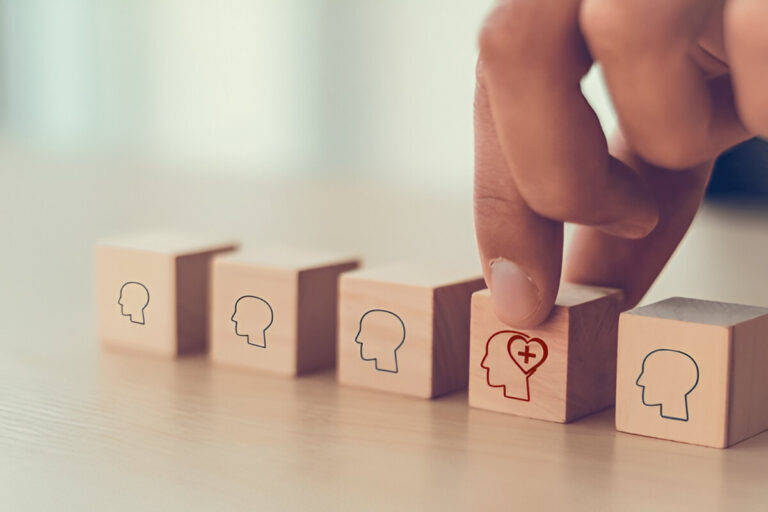Modern society always fails to consider the critical mental health problems that face men, which are important. While the scope of mental health conversations has improved in the last decade, societal norms continue to muffle men as they come to terms with their mental health. Perceived expectations that men have to always come across as capable and resilient greatly hinders their ability to ask for help which eventually leads to an increase in both substance use disorders and suicidal tendencies.
This is exactly why it is important to make June Men’s Mental Health Month. Following Mental Health Awareness Month in May, June is a perfect time to continue the conversation and specifically address the unique mental health challenges that men face. As June already has observances like Men’s Health Week and Father’s Day, it is the perfect month to amplify conversations about men’s emotional well-being. A focused men’s mental health month provides an opportunity to challenge false beliefs, encourage men to seek care, and help prevent unnecessary deaths.
Table of Contents
Toggle2. The Secret Struggle of Men’s Mental Health
2.1 Prominent Figures Reveal a Serious Problem:
The statistics on men’s mental health are very alarming. The Centers for Disease Control and Prevention states that the suicide rate for men is almost four times higher than for women. It is disturbing that although more than 20% of men will experience mental health problems, only approximately one in three mental health service users are men. According to data from the Priory Group, nearly 40% of men avoid speaking with professional help about their mental health problems because they fear that they will be judged and/or labeled as weak. The statistics show men are suffering in unprecedented ways, but widespread cultural taboos are major barriers to seeking help.
2.2 Ways in which Cultural Norms Adversely Affect Men’s Mental Health:
From a young age, children are taught that openly expressing emotions is taken as a weak point. Comments that say “man up” or “boys don’t cry” are ingested into the system and form a culture among men that makes them take their problems into their own hands. Such destructive forms of masculinity are very common in our society. Many men manage their mental health problems by using destructive behaviors like heavy drinking, which studies show that men do twice as much as women. Many men become so isolated that they find themselves alone, which has a tendency to increase depression. Most of all, the stigma of mental health prevents men from seeking help until they are in a real emergency. Apart from mental health, chronic stress can cause severe physical illnesses such as heart disease and stroke.
3. June presents a favorable period for this campaign for several reasons.
3.1 Using Other Men’s Health Campaigns from June
June is a perfect month to highlight men’s mental well-being with essential events like Men’s Health Week. Conventional Men’s Health Week, taking place in the second week of June, focuses on physical health issues, including prostate cancer and heart disease. By including mental health to the current agenda, we promote a better understanding of men’s health needs. Mental and physical health are closely related and could be improved at the same time for men.
3.2 The Significance of Father’s Day
The fact that Father’s Day is in June offers a unique opportunity to discuss mental health issues that come with being a father. Emotional stress is common among many fathers who are required to act strong for their loved ones. This event is an opportunity to open conversations with men about the specific pressures they face as fathers. It also becomes a very appropriate time to bring out mental health resources that specifically target fathers, who are often so busy supporting others that they forget about themselves.
3.3 Summer Specific Stressors for Men
Summer can be considered a laid-back season, but it has stressors that are particularly difficult for men. The summer period is usually associated with high financial outlays from travel, marriage ceremonies, and school expenses. Job stress tends to peak in summer when most companies notice an increase in tasks and responsibilities. Ironically, the increased exposure to sunlight and increased social opportunities frequently coincide with increased loneliness among men. A Men’s Mental Health Awareness Month in June could provide crucial support during this potentially difficult period.
June Awareness Campaign May Transform Men’s Mental Health Perception
4.1 Challenging Harmful Stereotypes
A Men’s Mental Health Awareness Month in June could go a long way in dismantling harmful myths around traditional masculinity. Open talks about men’s feelings and sufferings will be the main to change the old ideas of what it is to be strong. Listening to the way men have enhanced their mental health with the help of support services can encourage other people to do the same. What they share can inspire others to recognize that moving towards mental wellness is a positive and admirable choice.
4.2 Improving Access to Vital Resources
In this awareness month, important existing mental health resources could be highlighted along with the need to develop more. Many men do not seek help because they do not know what resources are available. A collective action can raise awareness on crisis hotlines, gender-aware therapy alternatives and programs targeting mental well-being in the job environment. Groups like HeadsUpGuys and Man Therapy have already developed important resources for men – and a June Men’s Mental Health Month would be a chance to get these critical tools into the hands of those who need them.
4.3 Driving Systemic Change
On a larger scale, this month may promote the creation of policies for men’s mental health. When we focus on men’s mental health, we can campaign for better mental health benefits in the workplace, increased public support for the programs for men, and inclusion of emotional resilience in education curriculums. With businesses and institutions seeing a clear, unified need and approval from the public, there is a real possibility of systemic change.
How Everyone Can Contribute
5.1 Actions for Individuals
Anyone can make a difference in enhancing mental health for men. A little thing such as reaching out to male friends and relatives can make a big difference. Instead of using the typical “How are you?” you could say something along the lines of “How have you been feeling lately?” or “Tell me how you’ve been really doing?” Discussing your mental health experiences, as long as it is safe, helps others to do the same. Social media can literally amplify your efforts by promoting followers to use hashtags such as MensMentalHealthJune, which will enlarge the reach of mental health information.
5.2 Opportunities for Organizations
There are different opportunities for organizations in the private and public sectors to promote men’s mental health. Businesses can put in place mental health days and ensure their Employee Assistance Programs are publicly ad场比赛 and user-friendly. Local community centers might organize sessions providing information about how to cope with stress and keep emotional health. Mental health nonprofits can partner up with other organizations to come up with campaigns, that are specific to needs. Even small steps such as hanging mental health posters in break rooms or men’s restrooms can lead to actual advancement.
Conclusion: This is the time to act.
It’s clear from the numbers, the urgency is imminent, and the time is ours. By declaring June Men’s Mental Health Awareness Month, we start to take the problem seriously, something which has been underrepresented consistently. With this initiative, we can change individual experiences, change norms and make sure no man suffers in isolation.
When men take care of their mental health, they not only do good to themselves, but to their families, workplaces, and communities as well. In this June, we are able to start a campaign with a lifetime impact. Make the men in your life feel valued, provide useful information and support improvement initiatives. As a group, we are able to reframe asking for help as the most powerful decision one can make.
The conversation starts now. The healing begins today. This June, let’s pledge to make men’s mental health our priority.
FAQs About Men’s Mental Health
Why are mental health issues more challenging for men?
Men are expected to bottle up their feelings which will only make them more difficult to ask for help. One of the major challenges for men is the pressure to deal with problems on your own and pretend to be strong.
What are the warning signs that a man might have difficulties with his mental health?
- Withdrawing from friends/family
- Increased anger or irritability
- Drinking more than usual
- Losing interest in hobbies
How can I help a man who is suffering from mental health issues?
- Listen without judgment
- Help him get in touch with a doctor or a therapist who can give him guidance.
- Check in regularly
Is there any mental health support for men?
Yes! Organizations like HeadsUpGuys and Man Therapy offer help designed for men.
Why was June selected, rather than another month?
As June is already the month of Men’s Health Week and Father’s Day, it is a perfect time to focus on men’s mental health.





